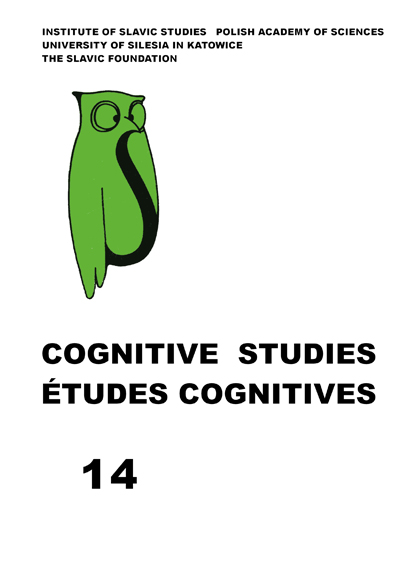Verbs of Emotion with se in Slovene: Between Middle and Reflexive Semantics. A Cognitive Analysis
Verbs of Emotion with se in Slovene: Between Middle and Reflexive Semantics. A Cognitive Analysis
Author(s): Agnieszka Będkowska-KopczykSubject(s): Language studies, Language and Literature Studies, Theoretical Linguistics, Semantics, Pragmatics, South Slavic Languages
Published by: Instytut Slawistyki Polskiej Akademii Nauk
Keywords: Emotion; middle; reflexive verbs of emotion; intentionality and volitionality; the Slovene language
Summary/Abstract: This article presents a cognitive analysis of Slovene emotion verbs with the personal pronoun se ‘self’, e.g., bati se ‘to be scared’. Slavic verbs of this type are traditionally considered reflexive. The objectives of the article are twofold. First, the article aims to demonstrate that se in Slovene verbs of emotion indicates not the reflexive, but the middle voice construction. However, given specific pragmatic factors, these verbs also form reflexive constructions with the heavy form sebe ‘self’ (Kemmer, 1993; Tabakowska 2003, 2003a), or even both middle and reflexive constructions with se and sebe, respectively. Second, this article challenges Anna Wierzbicka’s (1988, 1992, 1995) assumption that the Slavic verbs with the light form of the personal pronoun or the -sja affix (Russian) express (almost) volitional, i.e. self-induced emotion. In line with cognitive Suzanne Kemmer (1993), it is claimed that the constructions with the verbs under discussion indicate a low degree of volitionality in the process of emotional change i.e. they lexicalize an event that occurs independently of the Experiencer participant’s will.
Journal: Cognitive Studies | Études cognitives
- Issue Year: 2014
- Issue No: 14
- Page Range: 203-218
- Page Count: 16
- Language: English

